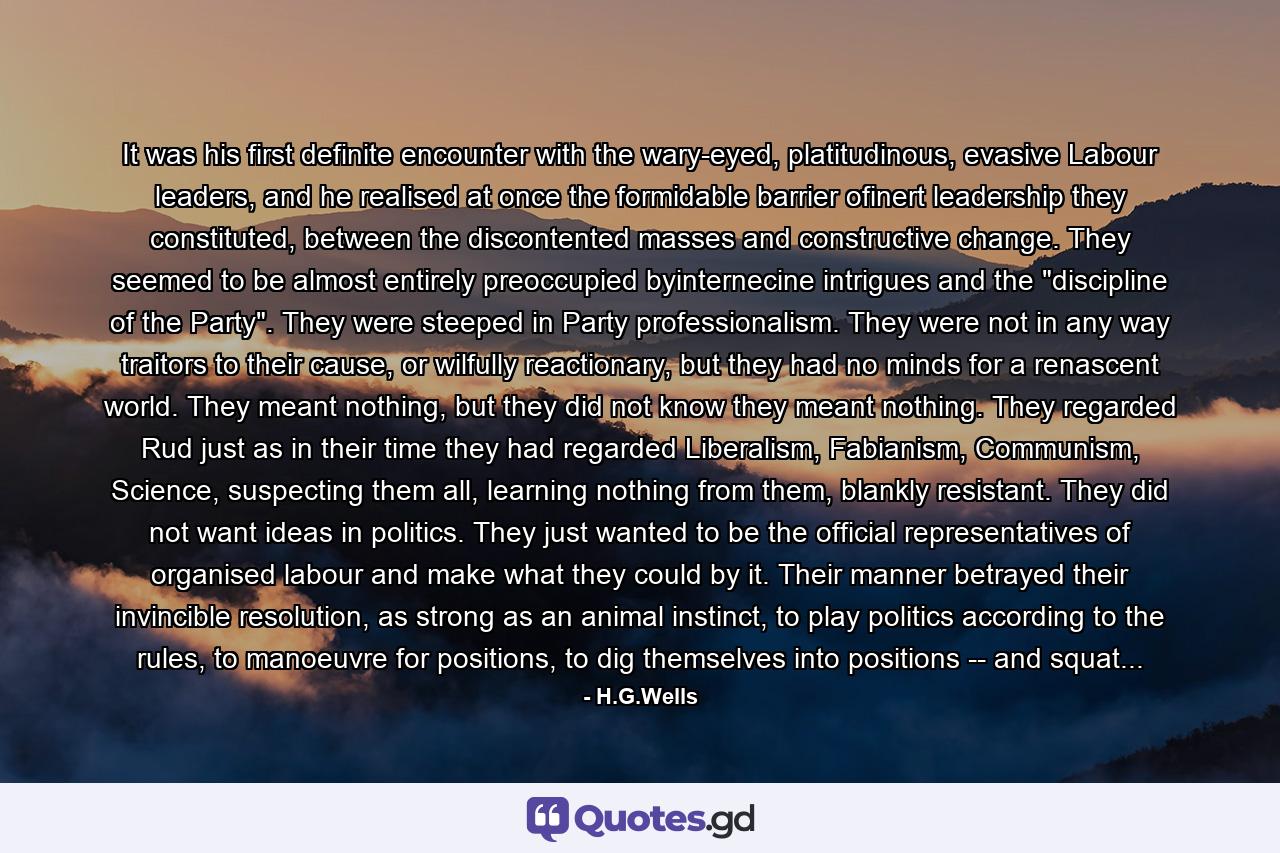It was his first definite encounter with the wary-eyed, platitudinous, evasive Labour leaders, and he realised at once the formidable barrier ofinert leadership they constituted, between the discontented masses and constructive change. They seemed to be almost entirely preoccupied byinternecine intrigues and the “discipline of the Party”. They were steeped in Party professionalism. They were not in any way traitors to their cause, or wilfully reactionary, but they had no minds for a renascent world. They meant nothing, but they did not know they meant nothing. They regarded Rud just as in their time they had regarded Liberalism, Fabianism, Communism, Science, suspecting them all, learning nothing from them, blankly resistant. They did not want ideas in politics. They just wanted to be the official representatives of organised labour and make what they could by it. Their manner betrayed their invincible resolution, as strong as an animal instinct, to play politics according to the rules, to manoeuvre for positions, to dig themselves into positions — and squat…
